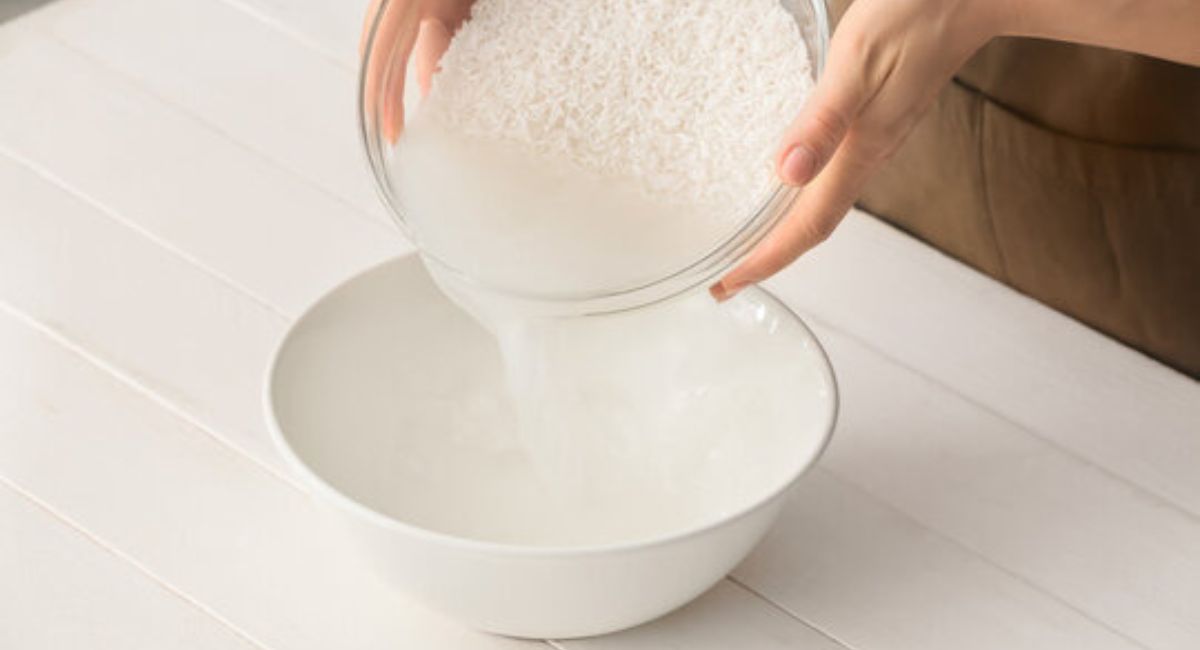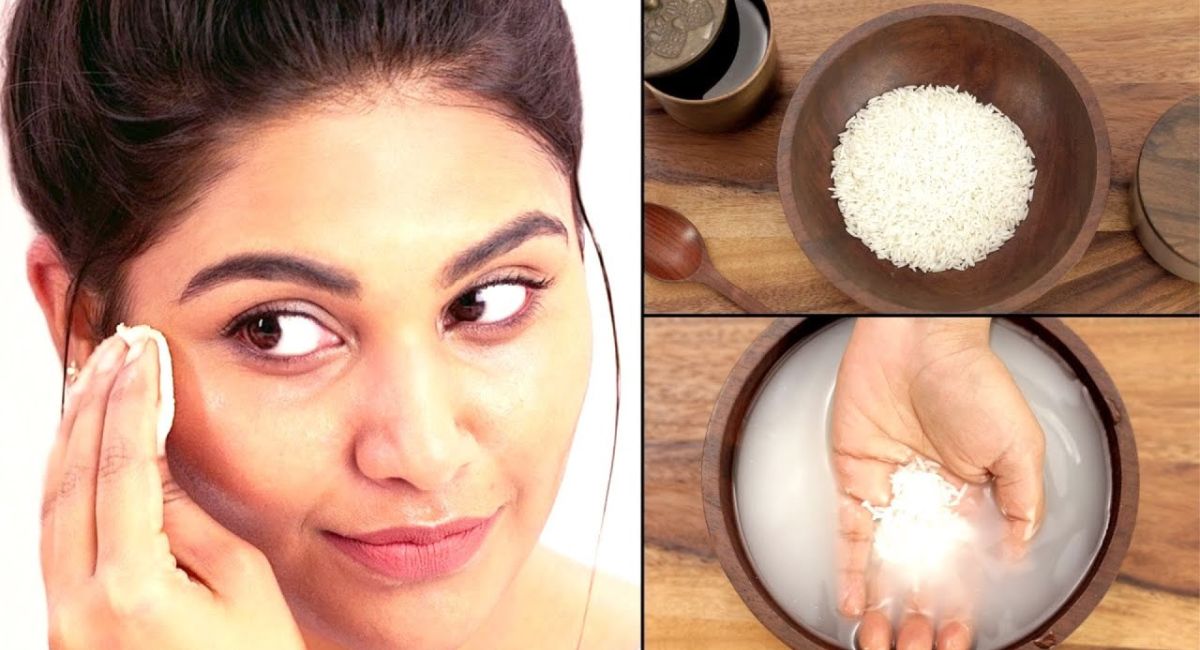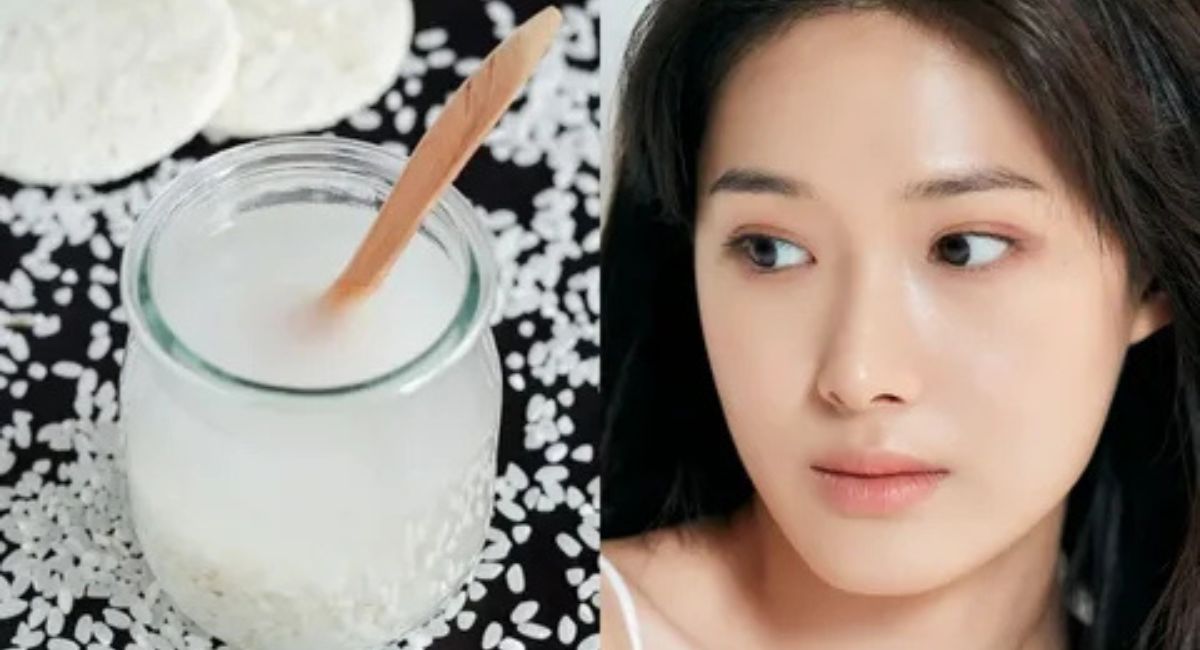Introduction: Is Rice Water Really the Secret Skincare Elixir?
For centuries, women across Asia have used rice water as a natural beauty remedy, claiming it makes the skin brighter, smoother, and more youthful. Today, social media and beauty blogs are buzzing with DIY rice water toners and masks. But here’s the important question: are there hidden rice water side effects on face, that nobody is talking about?
If you’ve ever wondered why some people rave about rice water while others complain of breakouts, irritation, or uneven results, you’re in the right place. This article will walk you through everything you need to know about rice water for skincare, including potential benefits, side effects, misconceptions, safer alternatives, and expert-backed advice. By the end, you’ll be fully equipped to decide whether rice water deserves a place in your skincare routine — or if it’s better left in the kitchen.
What Exactly Is Rice Water?

Rice water is simply the starchy liquid that remains after soaking or boiling rice. It contains amino acids, antioxidants, and minerals that are believed to help improve skin texture. Traditionally, it has been used as a natural toner, cleanser, or soothing remedy for irritated skin.
There are a few common methods of preparing rice water:
- Soaked Rice Water – soaking raw rice in water for 20–30 minutes.
- Boiled Rice Water – the leftover water after cooking rice.
- Fermented Rice Water – rice water that has been left to sit for 24–48 hours until it develops a slightly sour smell.
Each preparation has a different concentration of nutrients, which means the skin may react differently depending on which method you use.
Why People Use Rice Water on the Face
Before diving into the negative side effects, let’s acknowledge why Rice Water Side Effects on Face became so popular in the first place. Advocates claim it can:
- Brighten dull skin
- Minimize the appearance of pores
- Reduce oiliness
- Calm irritation
- Improve elasticity and softness
The supposed benefits sound appealing, especially if you’re looking for affordable, natural skincare. However, natural doesn’t always mean risk-free — and that’s where many people get caught off guard.
The Hidden Side Effects of Rice Water on Face
While rice water may work wonders for some, others experience problems that aren’t always highlighted in beauty tutorials. Let’s break them down:
1. Skin Irritation and Redness
Rice water contains starches and compounds that can sometimes be harsh on sensitive skin. If your skin barrier is weak, using rice water daily may trigger redness, burning, or dryness.
2. Breakouts and Acne Flare-Ups
Ironically, many people try rice water to reduce acne, but the opposite can happen. The starch in rice water can clog pores, trapping dirt and oil underneath, leading to whiteheads and pimples. Fermented rice water, in particular, contains more yeast and bacteria that may aggravate acne-prone skin.
3. Uneven Skin Tone
Instead of brightening, rice water may sometimes cause patchiness. Since it’s not a standardized skincare product, the nutrient concentration varies with each batch, leading to inconsistent results.
4. Over-Drying the Skin
Rice water is often praised for reducing oil, but too much use can strip away natural moisture. This can cause flakiness, tightness, and even worsen oily skin in the long run because your skin may overcompensate by producing excess sebum.
5. Allergic Reactions
Though rare, some people are allergic to compounds found in rice. Symptoms may include itching, swelling, and hives. Always do a patch test before applying rice water directly to your face.
Common Misconceptions About Rice Water Skincare

With so much hype online, it’s easy to believe rice water is a miracle cure. Let’s debunk a few myths:
- Myth 1: Rice water works for everyone.
In reality, results vary greatly depending on skin type. - Myth 2: The longer you ferment, the better.
Over-fermented rice water can harbor bacteria, which may damage your skin barrier. - Myth 3: It’s 100% safe because it’s natural.
Poison ivy is natural too — not everything natural is skin-friendly.
Who Should Avoid Rice Water on the Face?
Not everyone is an ideal candidate for rice water skincare. You may want to avoid it if you have:
- Sensitive skin prone to redness
- Active acne or cystic breakouts
- A compromised skin barrier (eczema, rosacea, or psoriasis)
- Allergies to rice or starch-based skincare
How to Use Rice Water Safely (If You Still Want to Try It)
If you’re curious but cautious, here are a few tips:
- Always patch test first – apply rice water on your jawline or inner arm and wait 24 hours.
- Dilute it – mix rice water with plain water to reduce potency.
- Limit frequency – once or twice a week is safer than daily use.
- Avoid fermented versions if acne-prone – opt for freshly soaked rice water instead.
- Moisturize afterward – rice water can dry the skin, so always follow with a hydrating moisturizer.
Mistakes to Avoid When Using Rice Water on Face
- Using concentrated rice water daily without breaks
- Leaving it on overnight without rinsing
- Applying it on broken or irritated skin
- Not storing it properly (it can spoil quickly)
Alternatives to Rice Water for Skincare
If rice water doesn’t suit you, there are plenty of gentle, effective options that provide similar benefits:
- Aloe Vera Gel – soothing and hydrating for sensitive skin
- Green Tea Toner – antioxidant-rich and calming
- Rose Water – gentle toner that refreshes and hydrates
- Niacinamide Serum – brightens skin and reduces oil without irritation
Real-Life Examples: When Rice Water Works and When It Doesn’t
- Success story: A woman with oily, resilient skin uses rice water toner twice a week and notices a smoother complexion.
- Cautionary tale: Another person with sensitive, acne-prone skin develops red bumps after just two applications.
These cases highlight that rice water isn’t one-size-fits-all. Your skin type and routine matter more than the hype.
Expert Insight: What Dermatologists Say
Most dermatologists agree that while rice water isn’t harmful for everyone, it’s not a proven treatment either. They emphasize that more scientific studies are needed to confirm its long-term safety and benefits. Dermatologists often recommend tested ingredients like hyaluronic acid, retinol, or vitamin C instead of relying solely on rice water.
FAQs About Rice Water Side Effects on Face
1. Can rice water cause pimples?
Yes, especially if you have oily or acne-prone skin. The starch may clog pores.
2. How long should rice water stay on the face?
No more than 10–15 minutes. Leaving it overnight may cause irritation.
3. Is fermented rice water better than regular?
Not necessarily. While fermentation increases antioxidants, it also increases bacteria that can irritate skin.
4. Can rice water remove dark spots?
There is no strong scientific proof. It may brighten temporarily, but it won’t erase deep pigmentation.
5. How often should I use rice water for skincare?
Once or twice a week is enough. Daily use may harm your skin barrier.
6. Does rice water help with wrinkles?
It contains antioxidants, but results are minimal compared to proven anti-aging ingredients.
7. Is rice water toner safe for teens?
Yes, but only if used sparingly and after a patch test. Teens with acne should be cautious.
Final Thoughts: Should You Use Rice Water on Your Face?
Rice water is a centuries-old skincare remedy with some potential benefits, but it’s far from a miracle cure. The truth is that rice water side effects on the face can range from minor irritation to stubborn breakouts, depending on your skin type and how you use it.
If you want to experiment, start slowly, patch test, and pay close attention to how your skin reacts. But remember — there are safer, dermatologist-approved ingredients available that deliver more consistent results.
At the end of the day, healthy skin is about balance, patience, and choosing products that work for your unique needs. Whether you stick with rice water or explore alternatives, let your skin — not the hype — be your guide.

